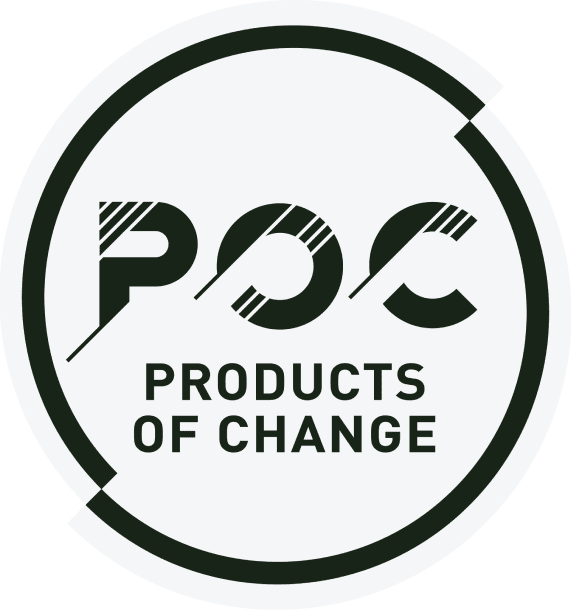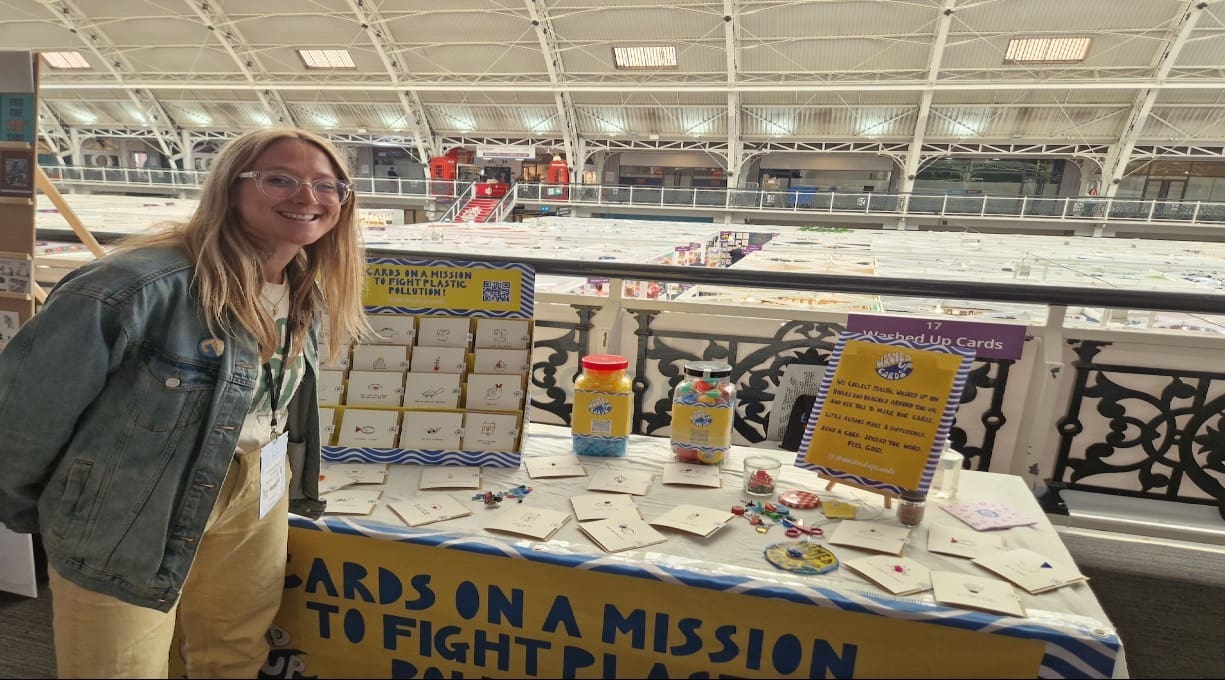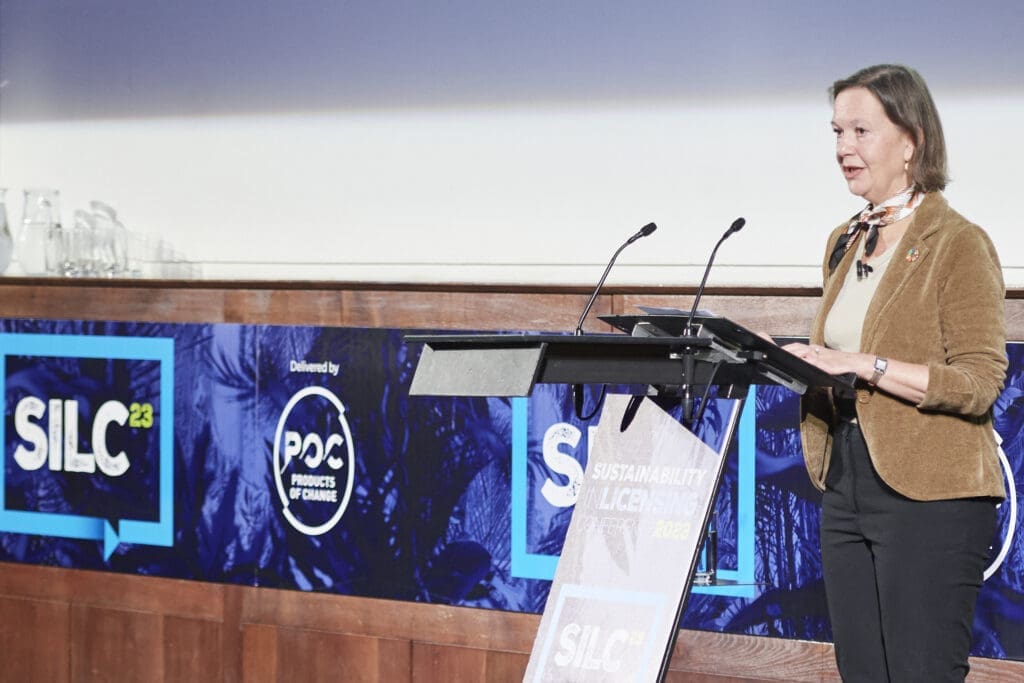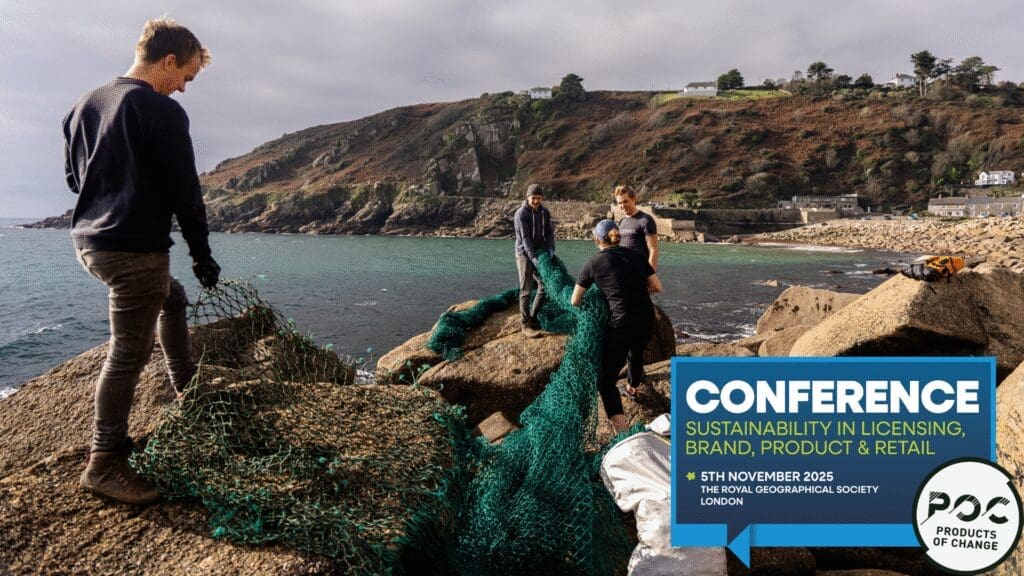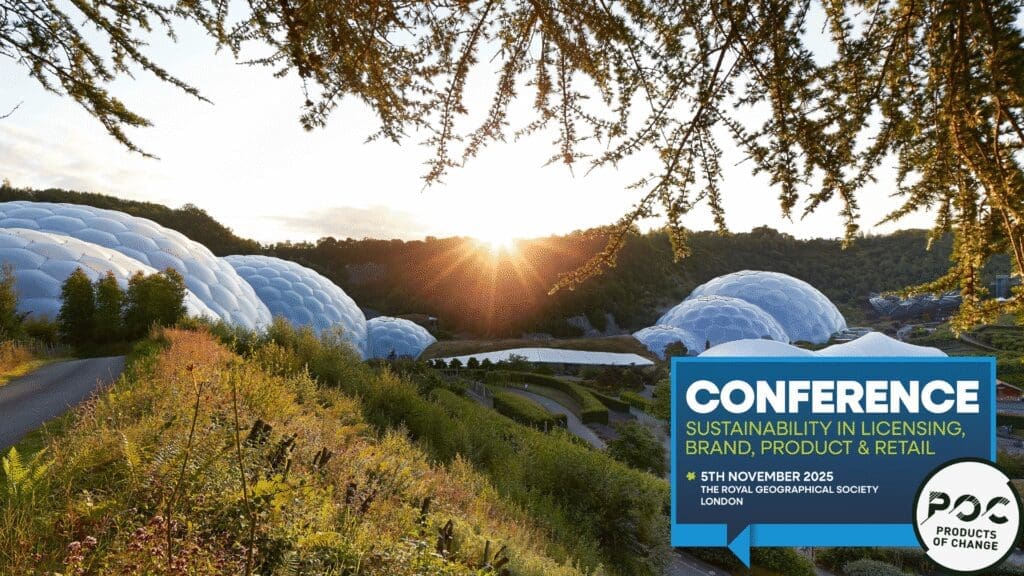Washed Up Cards, the independent UK greetings card company, operates on the model that it’d like to see its resources run out. That’s because Washed Up Cards is a greetings card company unlike many others – it’s one that produces its cards from rubbish.
Ocean pollution to be more precise.
The brainchild of Flora Blathwayt, an activist and environmental educator in her downtime, Washed Up Cards boasts a portfolio of in-house designed cards each embellished with a piece of plastic rubbish collected from local beaches and brought to life within the illustration of the card.
Within the collection on display at Progressive Greetings Live this week, there’s a design that reads: ‘You take up so mushroom in my heart.’ And there where the stalk of the mushroom is drawn on the card is stuck what seems to be a fragment of a plastic comb collected from a local beach clean operation.
“I try to come up with designs that I can then integrate these fragments of plastic rubbish into,” Flora tells Products of Change. “It started when I was put on furlough during the pandemic. I went out litter-picking and came back with all these pieces of plastic. I started putting them on cards and sending them to my friends.”
She now finds herself in the early days of running her own card-making business. At the same time, Flora has found herself working closely with local schools to host beach clean-up days with local school children to talk to them about ocean plastic by highlighting the value that can be unlocked in waste simply by being creative.
“I’ve also started working on a few consultancy projects, going into businesses to help educate them on their sustainability strategy,” says Flora. “I’ll be the first to admit that with the cards, the business of running a greetings card business – I am very new to. I am learning as I go. I’m sure I’ll make a lot of mistakes but people seem to really be responding to the message that Washed Up Cards is trying to promote.”
It’s a noble pursuit. While brands mark World Oceans Day today (Thursday, 8 June) it remains that there are 11 million tonnes of plastic pollution entering our seas each year. Over the next 20 years, it is estimated that this will triple to somewhere between 23 and 37 million tonnes a year by 2040.
The impetus to act now has never been stronger.
Not dissimilar to Washed Up Cards, the Cleaner Seas Project is on a mission to educate and engage the public in taking greater responsibility for the health of the world’s oceans.
Last year, the Cleaner Seas Project ran a series of beach cleans in partnership with Peppa Pig, Asda, and Twinkl Education with clean-up sites running from Scarborough to Bude as pre-schoolers and their carers took to river banks and beaches to get stuck in.
“Collaboration is key in unlocking the solutions to the massive environmental challenges that face the world; to make a real difference for our planet. For our rivers and seas, we must step out of the echo chamber and reach new audiences; communicate effectively with people who are not yet on board,” Avril Greenaway, CMO at the Cleaner Seas Group tells Products of Change.
“It’s our ambition to collaborate with authentic brands to support ESG efforts, for example, by delivering talks, organising beach cleans, workshops, and more, to inspire, educate, and incentivise teams.”
Alongside this, Avril creates artworks from plastic pollution – both macro and micro – using the plastic picked up from her beach clean excursions. Anyone passing through Land’s End in Cornwall last summer would have seen such an installation when Avril created an Aardman Shaun the Sheep surfing a wave of plastic.
“I’ve found this to be a powerful way to communicate the issues, connecting the source to the devastating effect we see in our rivers and seas,” says Avril. “Microplastics are having a detrimental effect on health and although we’ve long suspected this, science is only now catching up.
“To address this, and to talk about the discovery of microplastic particles in human blood, I created a human heart from microplastics. Reactions to this piece have been extraordinary.”
Both Flora and Avril are examples of not only art being used to convey a strong message around the health of our oceans and pollution’s direct impact upon our own lives, but business too.
“It’s very encouraging to see change happening within the licensing industry to reduce waste, carbon footprint, and think in a more circular way,” says Avril. “I believe we have to be working on momentum over perfection and bringing everyone with us to talk about that in an authentic and transparent way.
“It’s the only way we’ll get this thing done.”
